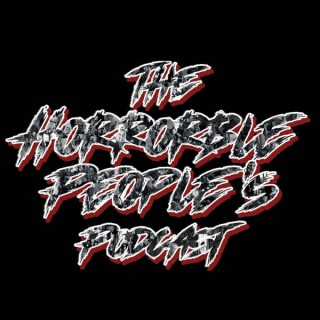Podcasts about Webster
- 4,423PODCASTS
- 14,720EPISODES
- 38mAVG DURATION
- 4DAILY NEW EPISODES
- Mar 4, 2026LATEST
POPULARITY
Categories
Best podcasts about Webster
Latest news about Webster
- Trump’s row with Spain could stall Santander-Webster deal, analyst says Stock Market News - Mar 3, 2026
- WBS: Wells Fargo Downgrades Webster Financial to Underweight | WBS Stock News GuruFocus New Articles - Mar 3, 2026
- United Semiconductors reserves payload space with Starlab to advance commercial-scale in-space semiconductor manufacturing lSemiconductor Today News - Mar 3, 2026
- On Gray Literature and Webster’s Timeline History Books 3 Quarks Daily - Mar 3, 2026
- HHS Secretary RFK Jr. appoints two physicians to Advisory Committee on Immunization Practices Healthcarecare Finance News Feed - Mar 2, 2026
- Canadian curler responds to viral cheating allegations: 'They were trying to catch us in an act' The Blaze - Feb 18, 2026
- The U.S. and China Are Pursuing Different AI Futures IEEE Spectrum - Feb 19, 2026
- Webster's rearguard century carries Tasmania to draw Cricket news from ESPN Cricinfo.com - Feb 19, 2026
- Petzel to Rep Emma Webster, McNay Appoints New Head of Curatorial Affairs, and More: Industry Moves for February 18, 2026 ARTnews.com - Feb 18, 2026
- The Webster Announces Its Debut With Two Upcoming Openings LODGING Magazine - Feb 18, 2026
Latest podcast episodes about Webster
Merriam-Webster's Word of the Day for March 4, 2026 is: ad hoc • AD-HOCK • adjective Ad hoc describes something that is formed or used for a special purpose, or that is made or done without planning because of an immediate need. // An ad hoc committee was formed to investigate the matter. // The company will hire more staff on an ad hoc basis. See the entry > Examples: "At the centre of the plan were tools designed to help governments and councils move beyond ad hoc responses to extreme weather." — Kirsty Johnston, The New Zealand Herald, 31 Jan. 2026 Did you know? In Latin ad hoc literally means "for this," and in English the term describes anything that can be thought of as existing "for this purpose only." For example, an ad hoc committee is generally authorized to look into a single matter of limited scope, not to broadly pursue any issue of interest. Ad hoc can also be used as an adverb meaning "for the particular end or case at hand without consideration of wider application," as in "decisions were made ad hoc."
Merriam-Webster's Word of the Day for March 3, 2026 is: spiel • SPEEL • noun A spiel is a fast speech that someone has often said before and that is usually intended to persuade people to buy something or to agree to something. // The founder gave us a long spiel about the benefits of joining the running club. See the entry > Examples: “We were in a hotel and when he and his publicist exited one door of the suite, I slipped out the other to meet him at the elevator. I gave him my spiel about the film and handed him a rough cut on VHS. He said, ‘Alright, we'll take a look.'” — Ed Burns, quoted in The Hollywood Reporter, 21 Jan. 2026 Did you know? Here's our spiel on spiel: it's well-known as a noun, and you may also be aware that spiel can be used as a verb meaning “to talk extravagantly,” but did you know that the verb can also mean “to play music”? That, in fact, is the word's original meaning, and one it shares with its German root, spielen. Spiel is also found in glockenspiel, the name of a musical instrument similar to the xylophone.
In 1981, a Harvard graduate student vanished after stepping out of Logan Airport the night after Thanksgiving. As investigators searched for answers, they focused on a suspect connected to another murder – a woman who was killed just two years earlier. He was convicted in one case and widely believed responsible for the other. But after reviewing thousands of pages of records, we found gaps that raise difficult questions: Was the wrong man blamed? And is the real killer still out there? Source materials for this episode cannot be listed here due to character limitations. For a full list of sources, please visit: https://crimejunkiepodcast.com/murdered-joan-webster-and-marie-iannuzzi/ Did you know you can listen to this episode ad-free? Join the Fan Club! Visit https://crimejunkiepodcast.com/fanclub/ to view the current membership options and policies. Don't miss out on all things Crime Junkie! Instagram: @crimejunkiepodcast | @audiochuck Twitter: @CrimeJunkiePod | @audiochuck TikTok: @crimejunkiepodcast Facebook: /CrimeJunkiePodcast | /audiochuckllc Crime Junkie is hosted by Ashley Flowers and Brit Prawat. Instagram: @ashleyflowers | @britprawat Twitter: @Ash_Flowers | @britprawat TikTok: @ashleyflowerscrimejunkie Facebook: /AshleyFlowers.AF Text Ashley at 317-733-7485 to talk all things true crime, get behind the scenes updates, and more! Hosted by Simplecast, an AdsWizz company. See pcm.adswizz.com for information about our collection and use of personal data for advertising.
Merriam-Webster's Word of the Day for March 2, 2026 is: exhilarate • ig-ZIL-uh-rayt • verb Exhilarate means "to cause (someone) to feel very happy and excited." It is usually used in the passive voice as (be) exhilarated. // She was exhilarated by the prospect of attending her dream school. See the entry > Examples: "I'll say it: winter is my favorite season for jazz in Chicago. Summer may be busier and splashier, but there's nothing quite like nestling into a darkened club, cheeks flushed from the cold, for a singular and inventive night of music. It does more than thaw frozen fingers: It exhilarates, inspires and inflames, in the best way." — Hannah Edgar, The Chicago Tribune, 11 Jan. 2026 Did you know? Many people find exhilarate a difficult word to spell. It's easy to forget that silent "h" in there, and is it an "er" or "ar" after the "l"? It may be easier to remember the spelling if you know that exhilarate ultimately comes from the Latin adjective hilarus, meaning "cheerful." (This also explains why the earliest meaning of exhilarate is "to make cheerful.") Exhilarate comes from exhilaratus, a form of exhilarare, which combines ex- and hilarare, a verb from hilarus that means "to cheer or gladden." If hilarus looks familiar, that may be because it's also the source of hilarious and hilarity (as well as hilariously and hilariousness, of course).
Merriam-Webster's Word of the Day for March 1, 2026 is: paean • PEE-un • noun Paean is a literary word that refers to a song of joy, praise, or victory. It can also be used as a synonym of tribute for a work that praises or honors its subject. // Her retirement party featured many paeans for her long years of service to the company. // Critics considered the movie both a thrilling Western and a paean to the natural beauty of the Rockies. See the entry > Examples: “The show is a tender study of people struggling to do right by themselves and others. It's also a paean to Chicago, my hometown ...” — Isaac Stanley-Becker, The Atlantic, 10 Aug. 2025 Did you know? In ancient Greece, Paiā́n (or Paiṓn) was a name used for the god Apollo when in the guise of physician to the gods (Paiā́n/Paiṓn comes from the name of an older Mycenaean healer god). Paiā́n and paiṓn were also used to refer to hymns of thanksgiving and praise sung especially to Apollo, as was their Latin descendant, paean. When paean first appeared in English in the late 16th century, it was used both in the context of Greek history and in general for a joyous song or hymn of praise, tribute, thanksgiving, or triumph. Over time, the word became even more generalized, and it is now used for any kind of tribute.
Merriam-Webster's Word of the Day for February 28, 2026 is: congruous • KAHNG-groo-us • adjective Something described as congruous is in agreement, harmony, or correspondence with something else. Congruous can also describe something that is appropriate for a particular circumstance or requirement, or a thing that is marked or enhanced by harmonious agreement among its constituent elements. // Their professional achievements were congruous with their academic abilities. // The low bookshelf forms a congruous barrier between the spaces. // It is a congruous, plausible story, consistent in all its details. See the entry > Examples: “Hannah is a sustainability consultant and climate impact manager, which is congruous with an outdoor ethos and the culture around bike guiding ...” — Wendy Altschuler, Forbes, 3 Sept. 2024 Did you know? Congruous had only been part of the English language for a few decades in 1615, when a book about the Church of Rome referred to “teaching most congruous to reason.” The word has remained more or less true to its Latin roots: it comes from Latin congruus, an adjective that comes from the verb congruere, meaning “to come together” or “to agree.” (Its more common antonym, incongruous is about the same age.) Another familiar congruere descendant in English is congruent, which first appeared at least a century earlier with the same meaning as congruous. English also acquired congrue, a verb meaning “to be in harmony” or “to agree,” from congruere, but it has since become obsolete.
235 The Age of Disclosure - Black Swan Event 2026 w/ Bobby Spags
Text Our Show HostsPlease Help Us - Support TOPS Bunker as Low as 3$ mo. Click Here...!!!The Age Of Disclosure Movie on PrimeTOPS Bunker Podcast YouTube ChannelSpeakPipe/TOPSTOPSBunker.comTonight we slip on our tin-foil hats and welcome back Bobby Spags to the show, to help us decipher Disclosure and how it affects the Prepper Survivalist community.Disclosure… there's that word again. Don't try to define it; it's bigger than Webster's definition. In today's social media, news, and halls of Congress… Disclosure is a hot topic.In order to understand Disclosure, we must first understand the Black Swan Event. By definition, a Black Swan event is a highly rare, unpredictable occurrence with massive and severe, widespread consequences that is often inappropriately rationalized in hindsight, as if it could have been foreseen. These extremely rare events, lying far outside normal expectations, defy standard forecasting, causing major systemic disruptions and dramatically impact finance, politics, science, technologies, accademia, and society.A Black Swan Event, for all intents and purposes, are so improbable, they should not take place… yet occasionally, they do. Covid19… Possible, but highly improbable. Won't happen in a modern world. Yet it did, and over 7 million lives were lost. The 9/11 attacks on US soil. Could happen, but with multiple threat detection and stop-gap technologies defending the US, it was highly improbable. Won't happen. Yet it did. Three thousand lives ended, the NY skyline changed forever, and it had a massive impact on global economics.Black Swan Events… Possible, but highly improbable.Disclosure is a Black Swan Event… it just hasn't happened yet.Seventy percent of Americans believe in Extraterrestrial life… UFOs, UAPs, USOs, Non-Human Intelligence, and Trans-Medium Crafts. Forty Nine Percent of Americans believe that these Non-Human Intelligence (ETs and Aliens), are not only real… they are in fact, here amongst us and working with world leaders to coexist. Sounds a little crazy…? Yeah, I'd agree with you.Disclosure, by definition, is the action of making new or secret information known.The President of the United States addressing the people of the world to tell them that Aliens are real… That's Disclosure.It's Highly Improbable… Can't be real… Never gonna happen…It's a Black Swan Event that could change the world in ways we can't even conceive of. And thats what we're talking about tonight.In case you haven't heard, there's a new documentary that came out called, “The Age Of Disclosure”. Government and world leaders, from their mouths to your ears, will explain everything. “The Age of Disclosure”, I'll put a link in the show notes.Jeremy and I are joined by Bobby Spags to discuss disclosure and how it's important to the Prepper Survivalist community.Please Visit Our Affiliate Links to Find Great Preparedness Products:The Age Of Disclosure Movie on PrimeThe Alien Invasion Survival Handbook PaperbackAlien Country Survival Handbook PaperbackHow To Survive an Alien Abduction PaperbackSupport the show
Merriam-Webster's Word of the Day for February 27, 2026 is: nettle • NET-ul • verb To nettle someone is to make them angry or annoyed. // Though he tried to maintain a friendly tone, the town official was clearly nettled by the reporter's suggestion that the town was at fault. See the entry > Examples: "I can't help but be reminded of an idiom that irked me no end during times of familial stress ... : 'Use it or lose it.' The message being that if a skill or resource is not regularly utilised, over time, we will lose it. As nettled as I was by it, I now feel obliged to acknowledge the obvious truth behind the catchphrase." — Gwen Loughman, The Journal (Ireland), 21 Aug. 2025 Did you know? If you've ever brushed against nettles, you know those plants have sharp bristles that can leave you smarting and itching. The painful and irritating rash that nettles cause can last for days, but at least it is a rash with a linguistic silver lining. The discomfort caused by nettles can serve to remind one that the verb nettle is a synonym of irritate. Nettle originated as a plant name that we can trace to the Old English word netel. Eventually, people likened the persistent stinging itch caused by the plant to the nagging aggravation of being annoyed, and nettle joined the likes of vex, peeve, and irk in describing such little miseries.
Kenny Webster interviews @SteveLovesAmmo.
Out of the Water features honest, hope-filled stories of lives changed by Jesus—before and after baptism. Episode 3: Jules Webster On this episode of the Out of the Water podcast, we speak with a Harlem native. He talks about his tumultuous upbringing, choosing to follow Jesus amid emotional pain, and finding hope in a new faith family. Hosted by Carvens Lissaint
Merriam-Webster's Word of the Day for February 26, 2026 is: knackered • NAK-erd • adjective Knackered is an adjective mostly used informally in British English to mean “very tired or exhausted.” // Unfortunately, I was too knackered after work to join them for dinner. See the entry > Examples: “‘How are you doing?' ‘Yeah, good thanks... just tired.' I don't know about you, but it feels like I'm having a version of this exchange at least once a day. It seems that everyone I know is genuinely and profoundly knackered. My friends say it. My postman says it. My teenage son says it. Even my partner, who usually has the energy levels of a Duracell-powered soft toy, grudgingly admits his batteries are drained.” — Sara Robinson, The Western Mail (Cardiff, Wales), 22 Nov. 2025 Did you know? An apt synonym for knackered might be the phrase “dead tired” for more than one reason. Knackered is a 20th century coinage that comes from the past participle of knacker, a slang term meaning “to kill,” as well as “to tire, exhaust, or wear out.” This verb knacker likely comes from an older noun knacker, which first referred to a harness-maker or saddlemaker, and later to a buyer of animals no longer able to do farmwork (or their carcasses). Knackered is used on both sides of the Atlantic but is more common among British speakers.
Merriam-Webster's Word of the Day for February 25, 2026 is: onomatopoeia • ah-nuh-mah-tuh-PEE-uh • noun Onomatopoeia refers to the creation of words that imitate natural sounds. It can also refer to the words themselves, such as buzz and hiss. // The author's clever use of onomatopoeia delights children especially. See the entry > Examples: “As they began to slurp, columns of noodles steadily streamed upward into their open jaws. The jazz soundtrack of Hiromi's Sonicwonder playing ‘Yes! Ramen!!' was punctuated by a gurgling roar reminiscent of shop vacs inhaling shallow pools. ‘We call it ‘hitting the zu's,'' says Steigerwald, noting the reference to zuru zuru, the onomatopoeia for slurping ramen in Japanese comics.” — Craig LaBan, The Philadelphia Inquirer, 18 Jan. 2026 Did you know? English speakers have only used the word onomatopoeia since the 1500s, but people have been creating words that imitate the sounds heard around them for much longer; chatter, for example, dates to the 1200s. Some onomatopes (as onomatopoeic words are sometimes called) are obvious—fizz, jingle, toot, and pop do not surprise. But did you know that other onomatopes include bounce, tinker, and blimp? Boom! Now you do. In fact, the presence of so many imitative words in language spawned the linguistic bowwow theory, which hypothesizes that language originated in the imitating of natural sounds. While it's highly unlikely that onomatopoeia is the sole impetus for human language, it certainly made a mark, which is nothing to sneeze at.
Kenny Webster interviews comedians Alex Stein and Jesse Peyton.
Merriam-Webster's Word of the Day for February 24, 2026 is: umpteen • UMP-teen • adjective Umpteen is an informal adjective meaning "very many" or "indefinitely numerous." // The artist has painted the same subject umpteen times, yet each piece has its own unique quality. See the entry > Examples: "The life of a showgirl often includes umpteen costume changes, elaborate props and copious amounts of hairspray." – The Economist, 4 Oct. 2025 Did you know? There may not be a gazillion ways in English to refer to a large, indefinite number, but there are definitely more than a soupçon. Many of these, such as zillion, bazillion, kazillion, jillion, and bajillion, start with -illion (as in million) and add a satisfying consonant or syllable in front for some extra oomph. The adjective umpteen does the same for -teen, with the oomph provided by the ump in umpty. Umpty, an adjective meaning "such and such" (as in "umpty percent" or "umpty-four") arose, like umpteen, in the latter half of the 1800s. We only occasionally use umpty these days, but you're bound to hear or read umpteen and umpteenth ("latest or last in an indefinitely numerous series") any number of times.
Merriam-Webster's Word of the Day for February 23, 2026 is: culminate • KUL-muh-nayt • verb To culminate is to reach the end or the final result of something. Culminate is usually used with in or with. // Their efforts have culminated in the discovery of a new treatment. See the entry > Examples: “The grand emotions of these cartoons-come-to-life culminate in huge song and dance numbers, the songs sung by the voices you know and love from the movies and the dances enhanced by the grace of topflight figure skating.” — Christopher Arnott, The Hartford Courant, 11 Jan. 2026 Did you know? When a star or other heavenly body culminates, it reaches its highest point above the horizon from the vantage point of an observer on the ground. The English verb culminate was drawn (via Medieval Latin) from the Late Latin verb culminare, meaning “to crown,” specifically for this astronomical application. Its ultimate root is the Latin noun culmen, meaning “top.” Today, the word's typical context is less lofty: it can mean “to reach a climactic point,” as in “a long career culminating in a prestigious award,” but it can also simply mean “to reach the end of something,” as in “a sentence culminating in a period.”


























































































































































































